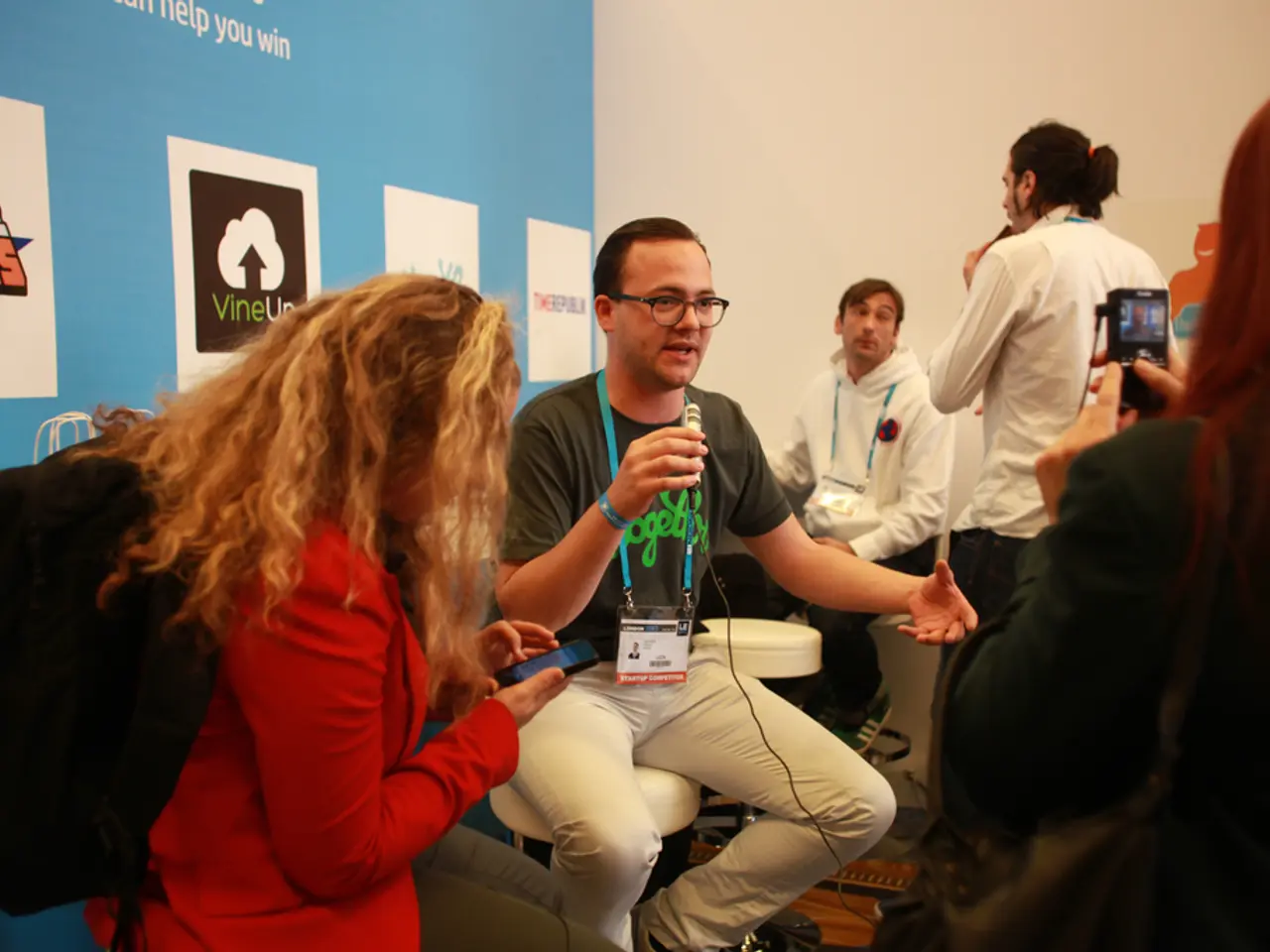Interview Attire Suggestions from Employment Professionals
In today's job market, the way you present yourself can significantly impact your chances of making a strong first impression. The appropriate attire for a job interview in 2025 varies by industry, reflecting different cultures and expectations.
In the **Tech Industry**, a more casual approach is common, ranging from business casual to smart casual. Avoid very casual clothes like hoodies or T-shirts alone; instead, choose neat business casual outfits like non-denim pants with a blazer or a polished shirt for a professional but relaxed look.
The **Finance and Law** sectors usually expect **business professional** attire. This means a tailored suit in neutral, solid colours like black, navy, or grey, combined with a plain button-down shirt or blouse and formal closed-toe shoes such as low-heeled pumps or lace-up dress shoes. Minimal, tasteful accessories and well-groomed hair complete the look.
**Creative Agencies** are more fashion-forward with flexibility to express style. Candidates can opt for trendy, slightly bold outfits that reflect company culture, but still maintain a polished, neat appearance. Fashion-forward accessories and well-coordinated looks that align with the creative vibe are appropriate.
**Other Industries** (such as Manufacturing, Healthcare, Logistics) often call for business casual dress codes such as tailored trousers or skirts with a conservative blouse or shirt and a jacket. Shoes should be professional, closed-toe, and suitable for a business setting.
When researching a company's dress code for a specific job interview, it's advisable to contact the interview coordinator directly via phone or email to ask about the typical dress code. You can phrase questions like "How do employees usually dress here?" or "What would you recommend for interview attire?". Additionally, looking at the company's website and social media for images or videos showing employees or events can provide insights into appropriate attire. Visiting the company location, if convenient, can also help observe employees' dress styles firsthand.
In all cases, it is advisable to err on the side of slightly overdressing to reflect professionalism and respect for the opportunity, unless you have clear confirmation that a more casual look is appropriate.
Matt Johnson, founder of LA-based creative agency Haymaker, advises dressing to represent one's best and most true self. Recruiters at Toast suggest business casual attire for interviews, but the bulk of interviews are virtual, so formal tops with casual bottoms are common. The fit of the suit is important, and showing up to an interview wearing sneakers is not acceptable in the legal field. Some tech companies, like Philo, may have employees who dress more formally, especially those based on the East Coast or working in finance teams.
Abercrombie & Fitch sells a premium heavyweight cropped tee, while COS offers a silk-cotton cardigan. For those seeking a more luxurious option, Simone Rocha sells ballerina grip sneakers for $780, and Rick Owens offers wide-leg brushed organic cotton-twill trousers.
By aligning your interview outfit with these industry and company insights, you maximize your chance of making a strong, positive first impression. Remember, first impressions are important in the finance industry, and candidates should convey a sense of seriousness, competence, and trustworthiness. In creative agencies, authentic personal presentation is prioritized over formal attire. Law firms, especially those with a long history, tend to have traditional dress codes for job interviews. The tech world often has a more casual approach to office attire.
In conclusion, understanding the dress code for your specific job interview can help you make a positive first impression and increase your chances of landing your dream job. Always remember to research, be flexible, and err on the side of conservatism to ensure you make the best possible impression.
- In the tech world, while a more casual approach is common, it's crucial to avoid very casual clothes like hoodies or T-shirts, opting instead for neat business casual outfits that offer a professional yet relaxed look.
- Meanwhile, the finance and law sectors usually expect business professional attire, consisting of a tailored suit in neutral, solid colors, combined with formal closed-toe shoes, minimal accessories, and well-groomed hair.
- Creative agencies, on the other hand, are more fashion-forward, allowing candidates to express their unique style while still maintaining a polished and neat appearance.
- For other industries, such as Manufacturing, Healthcare, or Logistics, a business casual dress code is often the norm, requiring tailored trousers or skirts, conservative blouses or shirts, and professional, closed-toe shoes suitable for a business setting.




